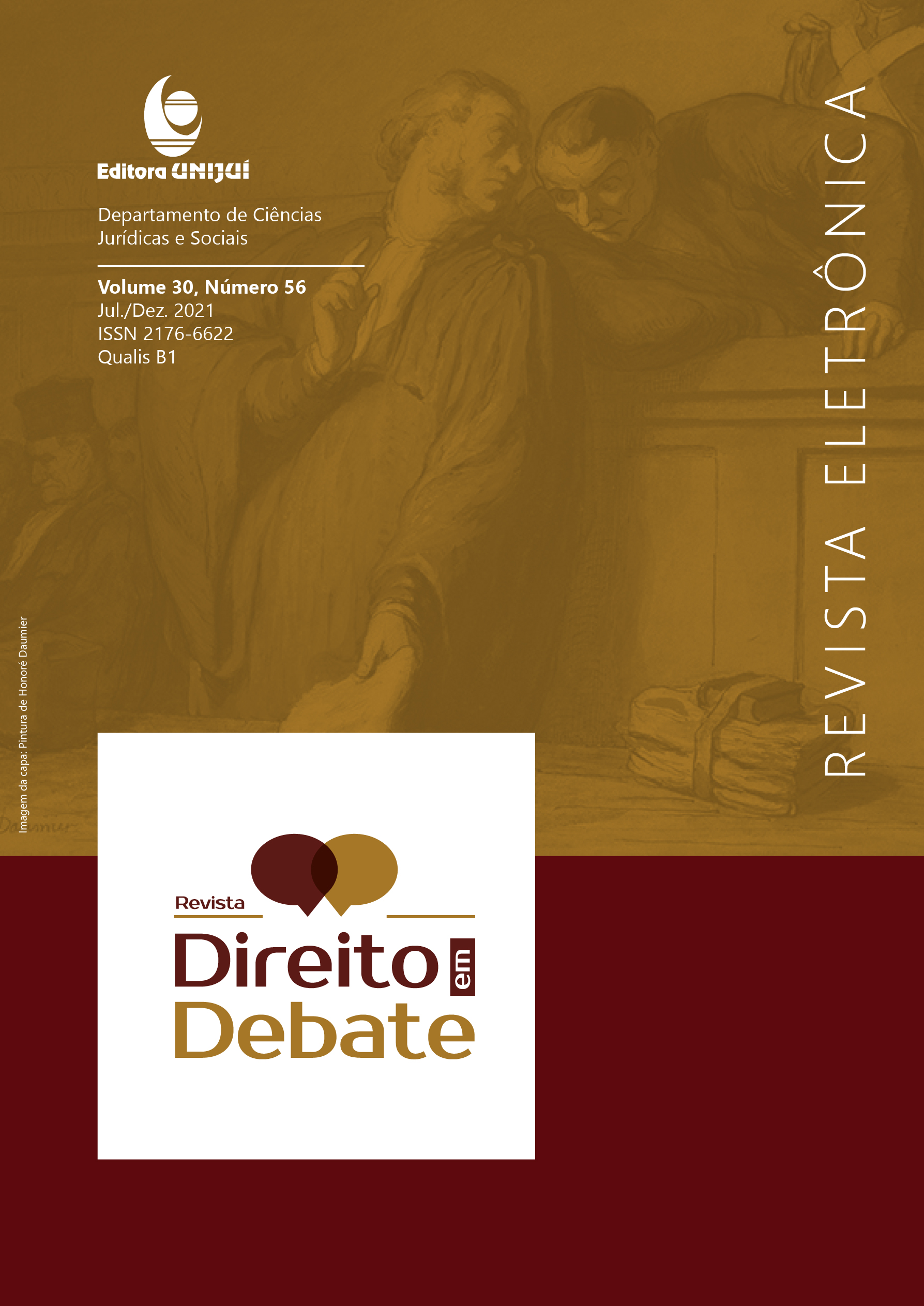O LABOR NANOTECH E A NECESSÁRIA METAMORFOSE JURÍDICA: COMO AS ATUAIS SOCIEDADES DE RISCO PODEM SE VALER DE UM AMBIENTE REGULATÓRIO PLURALISTA PARA A GARANTIA DO NÃO RETROCESSO À DIGNIDADE HUMANA DO TRABALHADOR
THE NANOTECHNOLOGICAL WORK AND THE NECESSARY LEGAL METAMORPHOSIS: HOW CURRENT RISK SOCIETIES CAN USE A PLURALISTIC REGULATORY ENVIRONMENT TO ENSURE THAT THE WORKER DOES NOT FALL BACK ON HUMAN DIGNITY
DOI:
https://doi.org/10.21527/2176-6622.2021.56.10312Palavras-chave:
nanotecnologias; direito do trabalho; princípio do não retrocesso; pluralismo jurídico; dignidade humanaResumo
A evolução tecnocientífica pós-modernista conquistou níveis moleculares de manipulação. Tal constatação é verificada com o advento da “Revolução Nanotecnológica”, isto é, a interação e a produção de nanopartículas - estas correspondentes à bilionésima parte do metro. Dessa maneira, indubitavelmente, o campo laboral faz-se alvo dessa inovação que cresce consideravelmente – e sem qualquer certeza quanto às consequências da interação nano com os seres vivos. Surgem, por conseguinte, preocupações no campo jurídico-trabalhista, principalmente, na falta de marcos regulatórios específicos. Portanto, o objeto do presente estudo está na demonstração da importância da atuação de diferentes atores para a proteção da dignidade humana do trabalhador, isto é, a esfera governamental e a esfera particular, diante da inércia do Poder Legislativo. Para tanto, o método utilizado foi o sistêmico-construtivista, assim como revisões bibliográficas, por meio de pesquisa de bases que não compõem o Direito tradicional. Assim, a harmonização de diferentes polos faz-se de suma importância, uma vez que se considera a necessidade do não retrocesso na dignidade humana dos trabalhadores. Ademais, fontes formais e informais atuando, conjuntamente, estão a se consolidar, principalmente, diante de uma sociedade de risco e que se caracteriza pelo caráter líquido dos conceitos clássicos - em especial, o próprio Direito (objeto de análise).
Downloads
Publicado
Como Citar
Edição
Seção
Licença
Autores que publicam nesta revista concordam com os seguintes termos:
a. A submissão de trabalho(s) científico(s) original(is) pelos autores, na qualidade de titulares do direito de autor do(s) texto(s) enviado(s) ao periódico, nos termos da Lei 9.610/98, implica na cessão de direitos autorais de publicação na Revista Direito em Debate do(s) artigo(s) aceitos para publicação à Universidade Regional do Noroeste do Estado do Rio Grande do Sul, autorizando-se, ainda, que o(s) trabalho(s) científico(s) aprovado(s) seja(m) divulgado(s) gratuitamente, sem qualquer tipo de ressarcimento a título de direitos autorais, por meio do site da revista e suas bases de dados de indexação e repositórios, para fins de leitura, impressão e/ou download do arquivo do texto, a partir da data de aceitação para fins de publicação. Isto significa que, ao procederem a submissão do(s) artigo(s) à Revista Direito em Debate e, por conseguinte, a cessão gratuita dos direitos autorais relacionados ao trabalho científico enviado, os autores têm plena ciência de que não serão remunerados pela publicação do(s) artigo(s) no periódico.
b. Autores mantém os direitos autorais e concedem à revista o direito de primeira publicação, com o trabalho simultaneamente licenciado sob a Licença Creative Commons Attribution que permite o compartilhamento do trabalho com reconhecimento da autoria e publicação inicial nesta revista.
c. Autores têm autorização para assumir contratos adicionais separadamente, para distribuição não-exclusiva da versão do trabalho publicada nesta revista (ex.: publicar em repositório institucional ou como capítulo de livro), com reconhecimento de autoria e publicação inicial nesta revista.
d. Autores têm permissão e são estimulados a publicar e distribuir seu trabalho online (ex.: em repositórios institucionais ou na sua página pessoal) a qualquer ponto antes ou durante o processo editorial, já que isso pode gerar alterações produtivas, bem como aumentar o impacto e a citação do trabalho publicado (Veja O Efeito do Acesso Livre).
e. O(s) A(s) autores(as) declaram que o texto que está sendo submetido à Revista Direito em Debate respeita as normas de ética em pesquisa e que assumem toda e qualquer responsabilidade quanto ao previsto na resolução Nº 510/2016, do Conselho Nacional de Ética em Pesquisa.
f. Os autores declaram expressamente concordar com os termos da presente Declaração de Direito Autoral, que se aplicará a submissão caso seja publicada por esta Revista.
g. A Revista Direitos em Debate é uma publicação de acesso aberto, o que significa que todo o conteúdo está disponível gratuitamente, sem custo para o usuário ou sua instituição. Os usuários têm permissão para ler, copiar, distribuir, imprimir, pesquisar, criar links para os textos completos dos artigos, ou utilizá-los para qualquer outro propósito legal, sem pedir permissão prévia do editor ou o autor. Estes princípios estão de acordo com a definição BOAI de acesso aberto.










